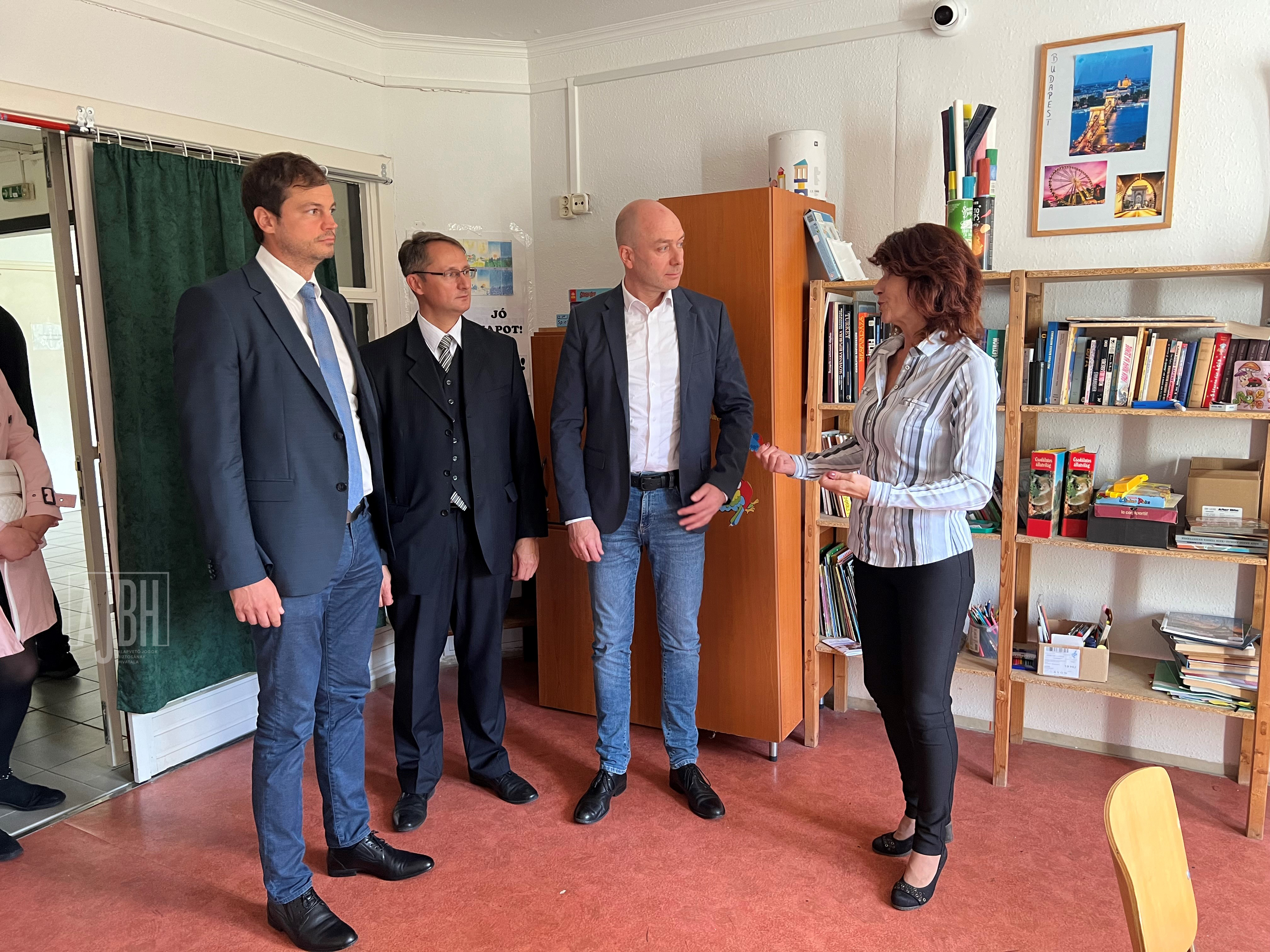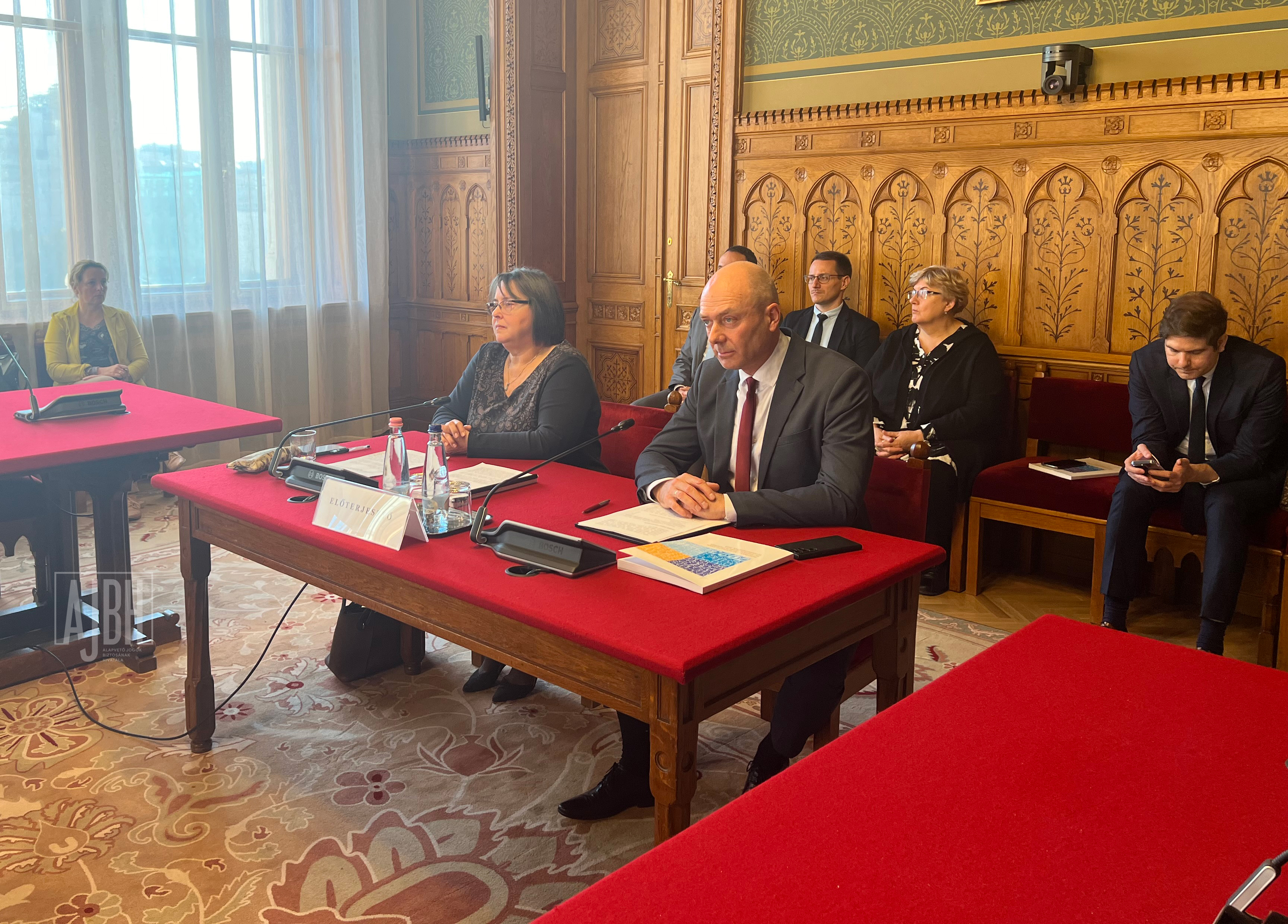Joint Statement of Commissioner for Fundamental Rights and Ombudsman for Future Generations on International Landscape Day - AJBH-EN
Asset Publisher
null Joint Statement of Commissioner for Fundamental Rights and Ombudsman for Future Generations on International Landscape Day
Joint Statement of Commissioner for Fundamental Rights and Ombudsman for Future Generations on International Landscape Day
On the occasion of the 2020 International Landscape Day, Commissioner for Fundamental Rights Dr Ákos Kozma and Ombudsman for Future Generations Dr Gyula Bándi call the attention of decision-makers and society as a whole to the key significance of the condition of landscapes, with special regard to their role in harmonizing the natural and built values of the human environment, as well as the cultural assets and elements of community identity. Landscapes are a part of the common heritage of the nation, so their protection and preservation for future generations are the obligation of the state and every citizen pursuant to the Fundamental Law of Hungary. This is why landscape protection criteria are to be enforced in an integrated way during decision-making, thus ensuring the long-term protection of the “man-made and natural assets of the Carpathian Basin”.
In the European Landscape Convention, the concept of a landscape is defined as an area as perceived by people. A landscape is actually the image of “home”, it encompasses everything that makes up the environment of a person. The protection of landscapes is an especially important means to ensure the right to a healthy and dignified environment. A landscape is a unique and complex system of all those natural and cultural elements that the Fundamental Law of Hungary provides special protection to, as part of the common heritage of the nation and national assets. Hungary joined the European Landscape Convention in 2005. Since 2017, we have celebrated 20 October as the International Landscape Day, which is also meant to promote the enforcement of the Convention.
This year, the Council of Europe called the state parties and non-party states to the Convention to pay extra attention to the topic of “Landscape Integration in Sectoral Policies” on the fourth International Landscape Day. They are requested to review how the mutual effects of landscape and regional development and landscape planning, as well as local settlement development and planning are represented in the respective regulations. Built-up density is also to be examined in the sectoral policies that concern cultural assets, agriculture, the social and economic sectors, as well as any further national objectives that exert a direct or indirect effect on the condition of landscapes.
Joining the initiative taken by the Council of Europe, the Commissioner for Fundamental Rights and the Ombudsman for Future Generations have been cooperating with the ministry responsible for landscape protection, i.e. the Ministry of Agriculture in properly commemorating the International Landscape Day. In the past few years, adjusting to the yearly topics, those concerned have reviewed the representation of landscapes on the local level, then in education, as well as the mutual effects of landscapes and water bodies in landscapes.
The Commissioner for Fundamental Rights and the Ombudsman for Future Generations draw attention to the unique characteristics of landscapes, the values represented by their diversity and their role played in forming identities. We are all attached to the landscapes of our “homes", we shape landscapes and we are shaped by landscapes too, both as individuals and as a community, be they the “wild and romantic Carpathian Mountains” or the “sea-smooth expanse of the lowlands” (quotations from Sándor Petőfi’s poem called “Lowland”). All this involves a high level of responsibility, and the state as a decision-maker plays a key role in it.
Recommendation
Asset Publisher



